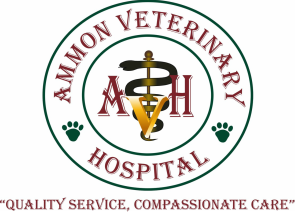Toxic Hazards to Your Cat
Cats may be finicky eaters, but their curiosity, fastidious grooming, and small size can predispose them to becoming ill due to poisoning. Even a small amount of poisonous substance can be deadly to cats. Cats can become poisoned via a number of routes. Contamination of the digestive system can result from direct ingestion of a toxin, ingestion of poisoned prey, or from grooming contaminated fur.Warning signs of poisoning are variable and will depend on the poison concerned. Many toxins produce:
If you feel your cat may have swallowed any poison, it is important that it be taken to a veterinary hospital as soon as possible. Wrap the cat in a towel and place it in a box to protect it and yourself from further contamination. Even if contamination has been confined to the coat, many chemicals can be absorbed across the skin. Encourage the cat to drink water to "wash out" absorbed toxins. If you suspect external contamination, remove the collar. It is best to clip off contaminated hair and wash the cat in warm soapy water. Dry the cat completely after bathing to prevent it from chilling. Keep the cat inside for 24 hours for observation. Cats are notorious for hiding their illness. If you notice significant changes in your cat's behavior, contact your veterinarian immediately.
- Gastrointestinal signs-vomiting and diarrhea.
- Neurological signs-tremors, seizures, depression.
- Respiratory signs-coughing, sneezing, difficult breathing.
- Skin signs-inflammation and redness.
- Liver failure that causes jaundice and vomiting.
- Kidney failure that may be evidenced as increased drinking, decreased appetite, and weight loss.
- antifreeze, fuels, bleach, disinfectants.
- aspirin, tylenol, antidepressants.
- liver, onions, cocoa, raw fish.
- rodenticides, herbicides, fungicides, insecticides.
- mushrooms, pine needles.
- toads, snakes, stinging insects.
If you feel your cat may have swallowed any poison, it is important that it be taken to a veterinary hospital as soon as possible. Wrap the cat in a towel and place it in a box to protect it and yourself from further contamination. Even if contamination has been confined to the coat, many chemicals can be absorbed across the skin. Encourage the cat to drink water to "wash out" absorbed toxins. If you suspect external contamination, remove the collar. It is best to clip off contaminated hair and wash the cat in warm soapy water. Dry the cat completely after bathing to prevent it from chilling. Keep the cat inside for 24 hours for observation. Cats are notorious for hiding their illness. If you notice significant changes in your cat's behavior, contact your veterinarian immediately.
